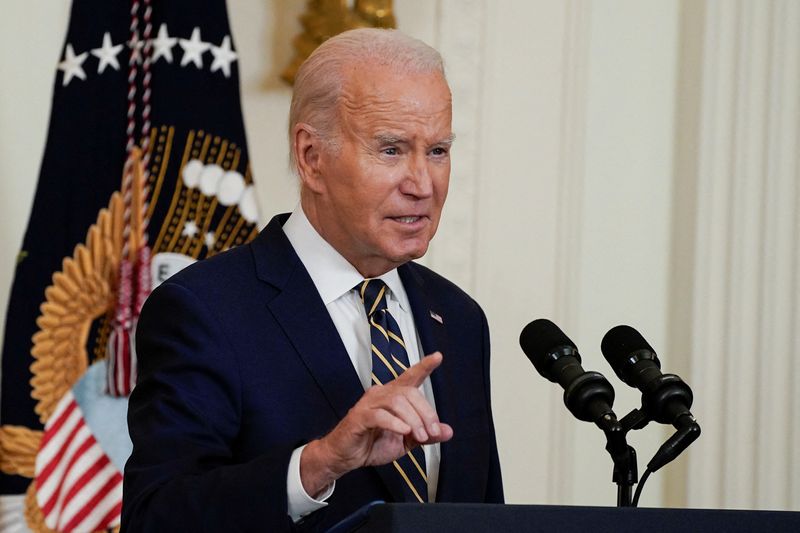
© Reuters. U.S. President Joe Biden delivers remarks on access to mental health care in the East Room of the White House in Washington, U.S., July 25, 2023. REUTERS/Elizabeth Frantz/File Photo
By Karen Freifeld and David Shepardson
NEW YORK/WASHINGTON (Reuters) – The White House on Wednesday will detail its plans to prohibit some U.S. investments in sensitive technology in China, and require that the government be notified of other investments, a senior government source told Reuters.
The plans are aimed at preventing U.S. capital and expertise from helping develop technologies that could support China’s military modernization and threaten U.S. national security.
Reuters reported on Friday that President Joe Biden was expected to soon issue a the long-awaited executive order to screen outbound investments in sensitive technologies to China this week.
The senior government source said that order is expected Wednesday. The White House declined to comment on Tuesday.
Biden administration officials have stressed for months any restrictions on U.S. investment in China will be narrowly targeted.
“These are tailored measures,” National Security Adviser Jake Sullivan said in April. “They are not, as Beijing says, a ‘technology blockade’.”
U.S. Commerce Secretary Gina Raimondo said in March the administration did not “want to be overly broad…. Anything that’s overly broad hurts American workers and the economy.”
The administration is expected to target active investment such as U.S. private equity, venture capital and joint venture investments in China in semiconductors, quantum computing and artificial intelligence.
Most investments captured by the order will require that the government be notified about them, sources have said. Some transactions will be prohibited.
The New York Times reported on Tuesday that the Biden administration plans to require firms making investments in a broader range of Chinese industries to report that activity, which will give the U.S. government great visibility into financial transactions between the United States and China.
Sources previously told Reuters investments in semiconductors that will be restricted are expected to track export control rules for China issued by the U.S. Department of Commerce in October.
Emily Benson, of the Center for Strategic and International Studies (CSIS), a bipartisan policy research organization, said she expects investments in artificial intelligence to be prohibited to military users and uses, and that other investments in the sector will only require notification to the government.
Benson said the burden will fall on the administration to determine what AI falls into the military category.
“They will have to draw a line of what constitutes a military application of AI, and to define AI,” said Benson, director of CSIS’s project on trade and technology.
Biden’s order is expected to direct publication of a notice of proposed rule-making. It is not expected to take effect immediately and to provide for a comment period to consider industry feedback before being finalized.
Source: Investing.com





























